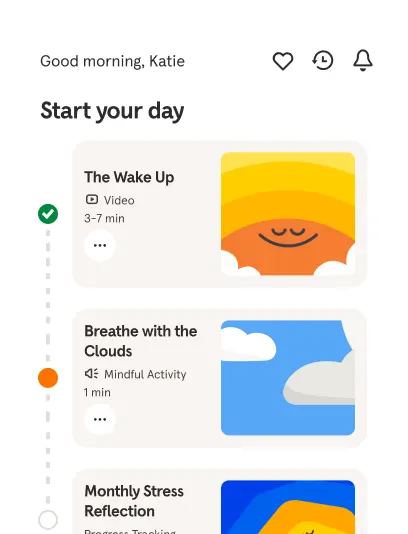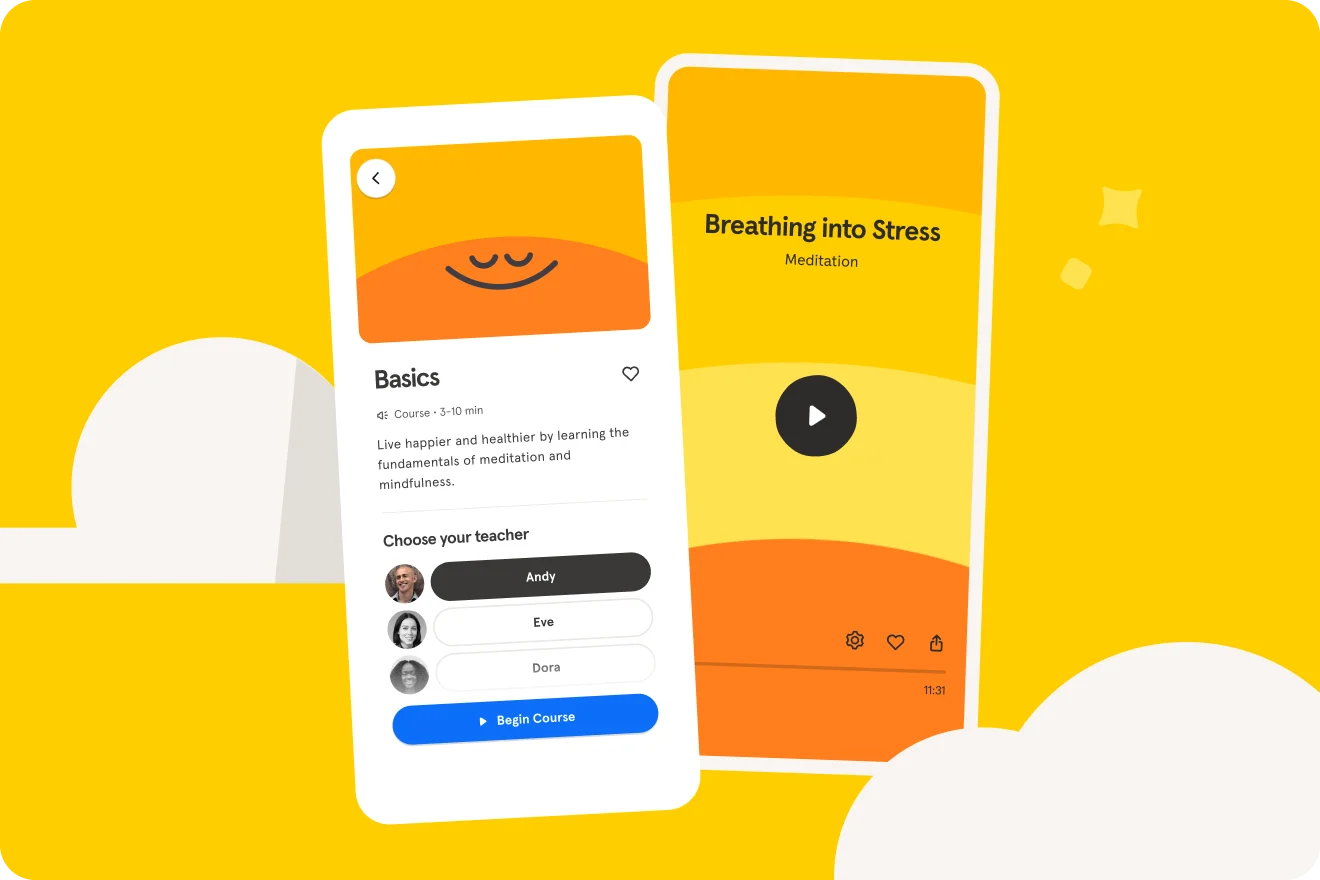Understanding Disenfranchised Grief
Telling the story of loss, injustice, pain, and grief allows us to find support in each other. You are not alone.
Try 14 days freeBetter mental health starts with Headspace. Unrivaled expertise to make life feel a little easier, using guided meditations, mindfulness tips, focus tools, sleep support, and dedicated programs.
Try 14 days free
(gentle music)- ` You know, I think we as queer people, wherever you identify within the rainbow, we get more than our fair share of grief. We almost become experts in pain, but that pain can be used to grow. (gentle music) When I was 14, 15 living in East Belfast, "Top of the Pops" was filled with boy George and Duran Duran and Campeche code, and that wasn't happening in Northern Ireland. So whenever I had the opportunity to visit London, I did. There were very few queer venues, very queer few clubs, couple of bars, everybody went to them. So the muscle gays` and the femme gays and the drag Queens and the transgender community and the lesbians and we all went to the same places and we celebrated our queerness and the freedom to be queer in such a wonderful city. HIV and aids became tangible when I moved to London and started losing people , people who were close to me. it kind of just wiped out this generation of beautiful young men. Families will maybe have taken their children home to bury them or to die, you know, going home to die. And that, just that phrase was something that really sits with me. And I understand why families do it. What I don't understand is why they feel the need, and this still happens, to cut off the people who were the nucleus of that person's life and not allow people to commune with the celebration of that person's life and express your emotion for the loss. And that, that's kind of what disenfranchised grief is to me it's that separation from being in the moment. So being diagnosed with HIV much later on it changed everything. Everything was blurred and everything was muted. And suddenly I was in this space on my own. I would cut myself off and I would maybe cut myself off from people who were armed with tools that could help me and support me. But I started exploring different methods of therapy. It was a really tough process, but it really worked. That unlocked an ability for me to be able to talk to other people, people close to me and um... allow them in. But I still find it tough To tell them exactly how I'm feeling. I'm learning that there are people that love me, who want to help me. And you have to manage grief. You have to do it in your own way and you have to be kind to yourself. And if you've lost someone or you didn't make it in time to say goodbye, fall apart, collapse, let it out. Cry, scream, rage, break things run a marathon, climb a mountain, go swimming whatever you need to do to process your grief. Don't stop yourself from doing things because the person you've lost, doesn't want your life to stop as well. When as a community we commune... we're so strong. Don't discount...
Details
About your teachers
- More about Andy
A former Buddhist monk, Andy has guided people in meditation and mindfulness for 20 years. In his mission to make these practices accessible to all, he co-created the Headspace app in 2010.
- More about Eve
Eve is a mindfulness teacher, overseeing Headspace’s meditation curriculum. She is passionate about sharing meditation to help others feel less stressed and experience more compassion in their lives.
- More about Dora
As a meditation teacher, Dora encourages others to live, breathe, and be with the fullness of their experiences. She loves meditation’s power to create community and bring clarity to people’s minds.
- More about Kessonga
Kessonga has been an acupuncturists, therapist, and meditation teacher, working to bring mindfulness to the diverse populations of the world.
- More about Rosie
Rosie Acosta has studied yoga and mindfulness for more than 20 years and taught for over a decade. Rosie’s mission is to help others overcome adversity and experience radical love.

Your lifelong guide to better mental health
Stress, sleep, and all the challenging emotions — care for your mind with the everyday mental health app that's shown to make a difference.
Try 14 days free
Look after your mind
Proven guided meditations and programs to help you stress less, sleep more soundly, and better navigate life’s challenges

Science-backed
Studies show that using Headspace for 30 days can reduce stress, increase resilience, and improve overall well-being

Explore 1000+ expert-led exercises
Access our library of meditations, breathing exercises, and guidance videos for stress, sleep, focus, everyday anxiety , parenting, and more.
Member reviews
Hear from some of our members
Your app brings so much peace and tolerance to our home.
Rachel
UK
Changing my thoughts has allowed me to change my life.
Davide
London
The stress and loneliness courses … taught me how to comfort myself.
Alicia
Canada
Headspace provides me with … a connection to myself, and a disconnection from negative thoughts, feelings, and sensations.
Keri
UK
- © 2024 Headspace Inc.
- Terms & conditions
- Privacy policy
- Consumer Health Data
- Your privacy choices
- CA Privacy Notice

